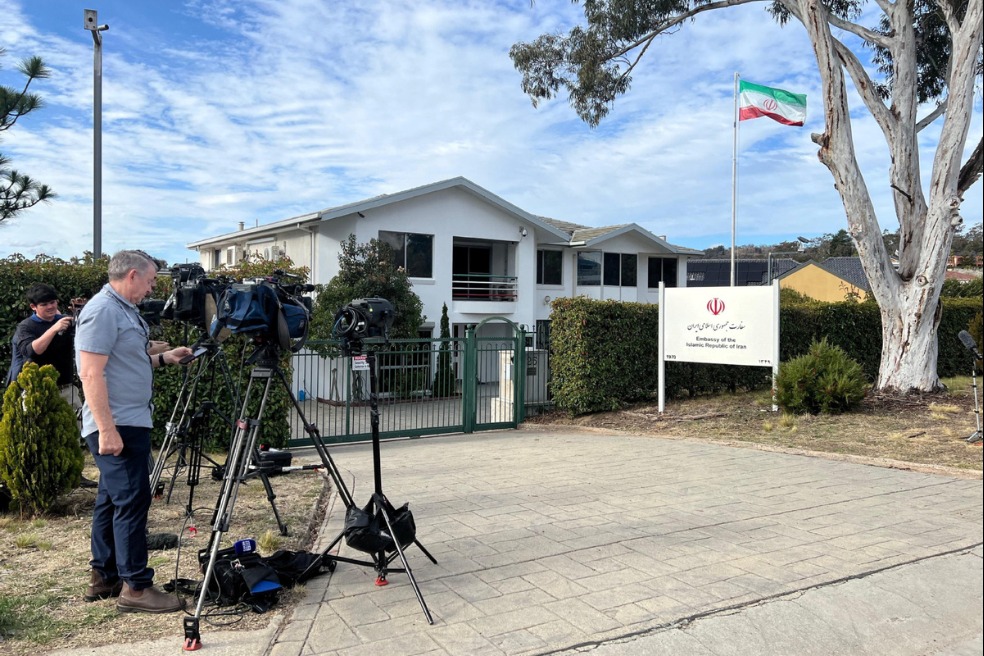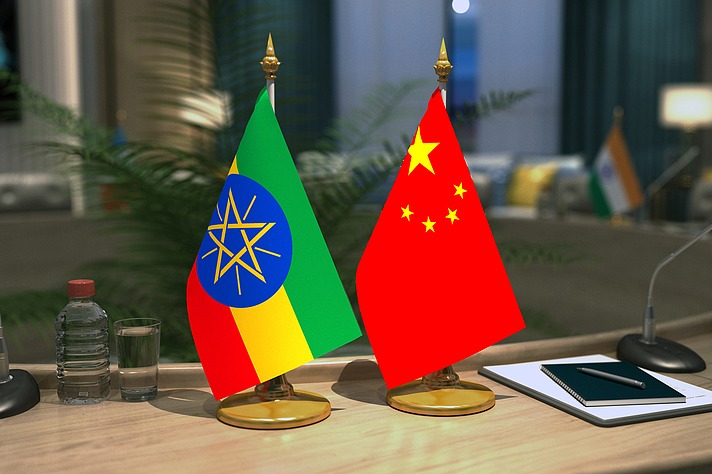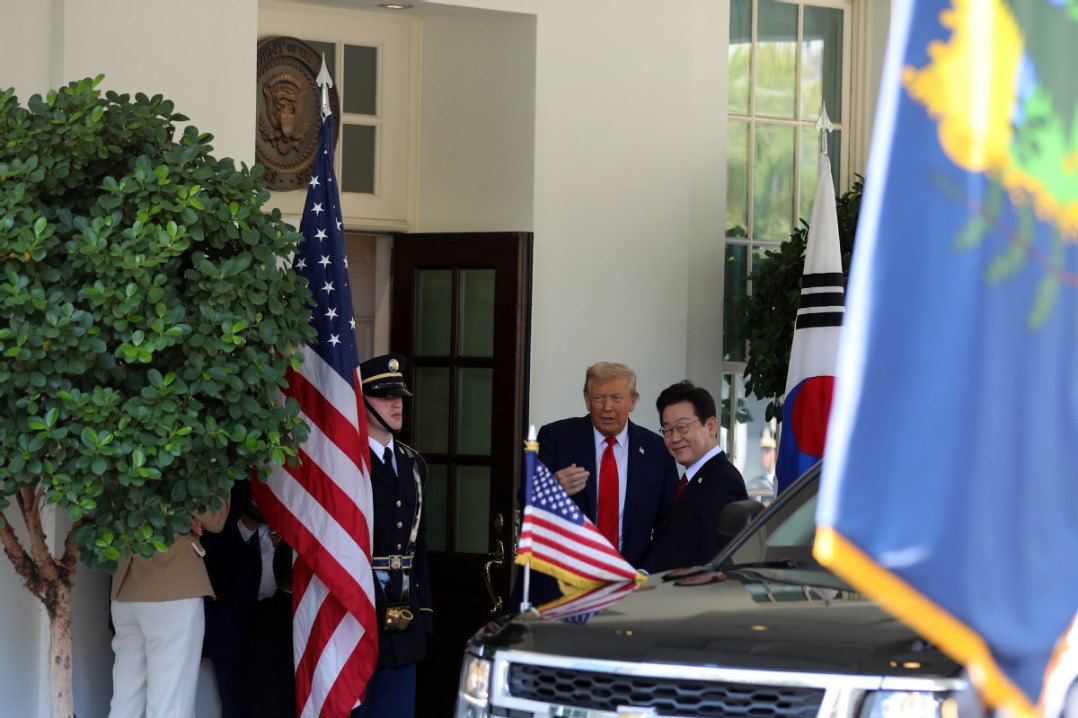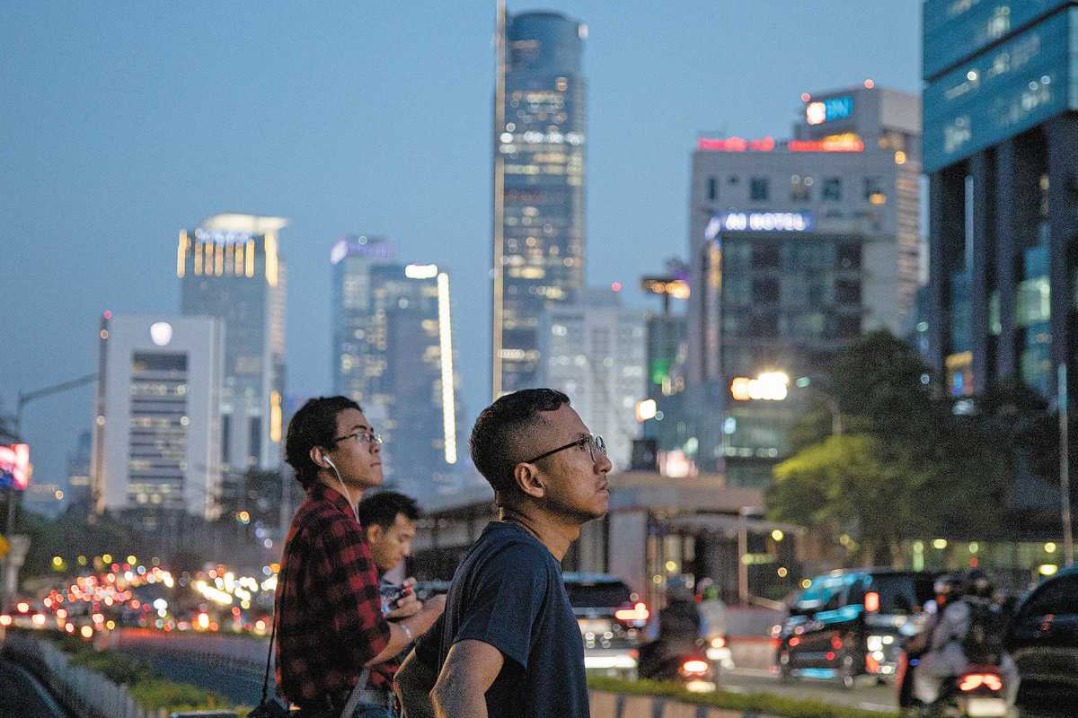US tariff policy seen as 'political theater'
Experts say levies designed for domestic posturing rather than economic reasons


The United States' tariff policy on China, and even on its neighbors Canada and Mexico, has become a form of political theater that experts say is designed primarily for domestic posturing rather than real economic recalibration.
In recent weeks, the Trump administration has rolled out sweeping tariffs, starting with a 10 percent duty on all foreign goods. Dozens of countries received a 90-day pause, but tariffs on Chinese imports surged to 145 percent.
On April 11, smartphones and laptops were temporarily exempted. Still, tensions grew as a White House fact sheet noted China now faces tariffs of up to 245 percent.
The tariffs, emblematic of the MAGA agenda's populist protectionism, are inflicting high costs on US consumers and destabilizing global trade, according to analysts.
"Trump's tariffs are not a negotiating tool, and they are not about trade or economics. They are about politics, and they are purely performative; and they are for domestic, not foreign, consumption," said David J.Firestein, a former US diplomat.
Firestein, inaugural president and CEO of the George H. W. Bush Foundation for US-China Relations, noted that the measures function as a political gesture, meant to project a populist image of toughness.
"Tariffs are not a means to an economic end; they are a means to a political end," he added. "What they actually do is tax American importers and consumers, contribute mightily to inflation, throw people out of work, and blow out the US trade deficit."
Trump's tariffs threaten to raise prices for imported goods from China, Canada and Mexico, which collectively shipped nearly $1.4 trillion worth of goods to the US last year, accounting for roughly a third of all US imports, according to official US data. The jobs that are ostensibly created by the tariffs aren't created here; they are created in countries like Vietnam and Mexico, Firestein added.
Echoing Firestein, political scientist Jon R. Taylor of the University of Texas at San Antonio described the tariff strategy as "a fool's errand that will result in tears and a bad ending".
Taylor noted that the use of tariffs and other protectionist measures is not only outdated but dangerously misaligned with the realities of a deeply interconnected global economy.
Notion dismissed
"This is 2025, not 1895," he said, dismissing the notion that imposing blunt tariffs can magically trigger a massive reshoring of manufacturing or isolate China's high-tech sectors.
Taylor said MAGA seeks to pursue a zero-sum game of "we win, you lose". Such an approach is not only counterproductive, but also likely to spur retaliatory measures that would further destabilize markets and ultimately harm US interests.
Both Firestein and Taylor said the administration's approach of "erratic" imposition and subsequent flip-flops of tariffs has unsettled investors and businesses alike.
In its latest round of countermeasures, released on April 11, China responded to the United States' "reciprocal tariffs" by raising its additional tariffs on US goods from 84 percent to 125 percent, effective from April 12.
The Customs Tariff Commission of the State Council, China's Cabinet, stated that current tariff levels have made US exports to China commercially unviable, so China won't respond to any further US tariff increases on Chinese goods.
Adding a historical perspective, geopolitical analyst Lawrence Freeman noted that the Trump administration's tariff strategy reflects a deep misunderstanding of its traditional economic purpose.
"President Trump's tariffs are not really protectionist. They are not intended to protect the growth of industry in the US but instead are being used to weaponize trade with China for a political end," Freeman said.
Under the guidance of early US leaders like Alexander Hamilton, tariffs were a critical tool. "Hamilton understood that for the former agrarian-based colonies to become a sovereign republic, the creation of a manufacturing sector was essential," Freeman said, adding that when applied correctly, tariffs fostered industrial growth and generated revenue.
In stark contrast, the current policy has demonstrated a profound departure from the historically proven methods of nurturing domestic industry, according to Freeman.
In Freeman's view, the Trump administration's tariffs are a short-term political maneuver that does little to foster the country's long-term industrial growth or innovation, which are among the core objectives of the MAGA Agenda.
Rather than advancing economic prosperity, the tariffs serve as a blunt instrument to "bludgeon China" with populist messaging that portrays the country as a threat to US dominance, he said.
Despite rhetoric and aggressive tariffs, China remains the US' top trading partner, with bilateral trade exceeding $680 billion last year and around 73,000 US companies investing in China, according to official statistics.
This enduring interdependence underscores the disconnect between the administration's confrontational stance and the economic realities that drive mutual prosperity, experts said.
"A stable US-China relationship is in the interests of both the United States and China, as well as the Asia-Pacific region and the world," Firestein said. "No one gains from instability, unpredictability and volatility in the relationship."
huanxinzhao@chinadailyusa.com

































